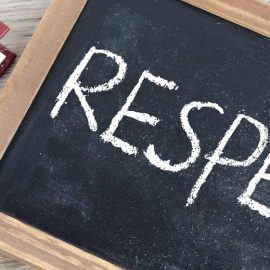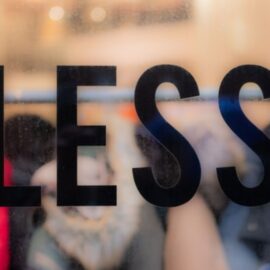

This article is an excerpt from the Shortform book guide to "The Defining Decade" by Meg Jay. Shortform has the world's best summaries and analyses of books you should be reading.
Like this article? Sign up for a free trial here .
What does finding a career in your 20s mean? Is it important to know what you want to do in your 20s?
Finding a career in your 20s can mean a lot of pressure. But it’s important to use this time in your life to build your career.
Read more about finding a career in your 20s and what it means.
Steps to Finding a Career in Your 20s
Finding a career in your 20s can seem daunting, but it’s an important part of this stage of adulthood. Here’s what you can do.
Look Realistically at Your Options
As a child, you’ve probably been told you can do “anything you want” with your life. Whether or not that was true when you were a kid, it’s most definitely not true when you’re an adult. Your choices are actually quite limited. The options you have before you are determined by your past—who you are, where you’ve come from, and what identity capital you have—and your vision of the future—where you ultimately want to be.
But this shouldn’t upset you; it’s actually a good thing. It is far easier to choose among a few options than infinite options. Having too many options often leads to anxiety. When faced with infinite choices, the pressure to make the best choice over all the others is overwhelming and results in paralysis. In the face of excessive options, it can feel safer not to make any decision, so that you don’t risk missing out on something better.
In one revealing study, researchers set up sampling tables in two grocery stores. The first offered samples of six different jams, and the second offered twenty four. While the twenty-four-sample table attracted more attention, the six-flavor table resulted in far more sales (30 percent as opposed to only three percent).
The best way to move beyond decision-making paralysis is to think honestly about what options are available to you. Make a list of the realistic options you have based on your experience, education, strengths, interests, and goals. Maybe you decide you could either continue working at the coffee shop, go to art school, take a job as an administrative assistant, or travel through South America until your savings are exhausted. Examine these options rationally. Which will lead you to a place you’d like to see yourself in ten or twenty years? Which are maybe just another excuse to put off committing to adulthood?
Making yourself aware of your true options is the first step towards setting realistic, workable goals: the building blocks of future happiness.
Create Career Goals for Your 20s; Ignore “Shoulds”
The goals you set today will structure your life in the years to come. In your twenties, it can be hard to chart a path forward because there are no ready-made maps outlining what you should do with your life as there were in college.
In college you had a limited set of classes you could take and you knew exactly what you needed to do to succeed in them. Once you leave college, the map disappears and you need to start thinking about what you “should” be doing with your life. College had easy benchmarks that you could measure yourself against to see if you were doing what you “should” be doing. After college, though, those benchmarks disappear and it’s difficult to know what standards to judge yourself against.
Because your life is so wide open during these years, you’ll likely get significant pressure from friends, family, or social media as to what you should do with it. These are “shoulds,” and they can push you in one of two ways:
- You should be more successful by now: Seeing other people’s successes, you may feel pressured to catch up, and to find a big, deep purpose that makes you look good. You may even consider taking on projects that wouldn’t otherwise appeal to you, only because of how you think it might reflect well on you on social media. For example, you might think about going to work for a well-known charity when in truth, you never envisioned devoting your life to humanitarian causes.
- You should stay free and uncommitted: Or, you’ll feel pressure in the opposite direction: pressure to stay free and unencumbered, when in fact, you may be ready to leave the party circuit, find a steady job and a steady partner, and settle down.
It’s easy to mistake other people’s “shoulds” for your goals, but resist the urge. “Goals” are not “shoulds.” Goals come from inside us; shoulds are pressures from others. Goals feel like dreams that would truly make us happy; shoulds feel like obligations. Goals can be worked toward and can evolve as we gain more understanding; shoulds are a cut-and-dried choice between perfection and failure.
Instead of getting caught up in what others think you should do, set practical, workable goals that make sense for you. Then move toward achieving them in realistic steps. Keep in mind a few guidelines:
- Don’t worry about whether or not an opportunity is below you. Look for opportunities that might lead somewhere you’d feel proud of.
- Keep seeking out learning opportunities.
- Don’t stress about reaching your potential as early as some of your peers. The truth is, most people don’t reach their potential until their thirties—or fifties. Your twenties are where you’re laying the groundwork, not where you’re fulfilling your life’s purpose.
When crafting your goals, focus on these three essential elements; these are what lead to a fulfilling adult life:
- People (who we spend time with)
- Places (where we live)
- Things (what we do for work)
Start with whichever element you are certain of, or whichever you know you have a specific goal regarding. From there, create goals addressing the other areas that can accommodate your first priority. For example, maybe you know you’d like to move back to your hometown but you’re not as clear on the other pieces. Start with the hometown piece, then figure out how you can adjust your career to fit, leaving room for a potential relationship.
Build Uniqueness From Common Parts
Many twenty-somethings get caught up in a particular “should” of their own, namely, that their life should be as unique, original, and interesting as is humanly possible. But this can get in the way of finding a career in your 20s. When you have such a lofty goal but no specific plan to achieve it, you are likely to resist choosing any career out of the fear that doing so would mean giving up your potential uniqueness. Building a career isn’t original, after all. It’s something everyone is expected to do, and doing it can feel like selling out to convention.
However, while committing to a path might feel like a surrender of your specialness, the reality is the opposite: If you don’t commit to something, your life will end up unexceptional and unoriginal. Fortunately, you can build yourself a unique and fascinating life out of the same building blocks of experience that everyone else does. Treat the process as you would building a custom-made bike: The parts might be the same ones everyone uses, but the result is an expression of you alone.
Your particular life will be original because of the specific set of experiences you choose to piece together. But until you start collecting the pieces, you can’t form the path.
Finding a career in your 20’s is rewarding, and can lead to other incredible opportunities.

———End of Preview———
Like what you just read? Read the rest of the world's best book summary and analysis of Meg Jay's "The Defining Decade" at Shortform .
Here's what you'll find in our full The Defining Decade summary :
- Why the twenties are your most important decade
- How you were fooled into thinking it was an extended period of youth and freedom
- Why you should use this decade to find personal and professional success






